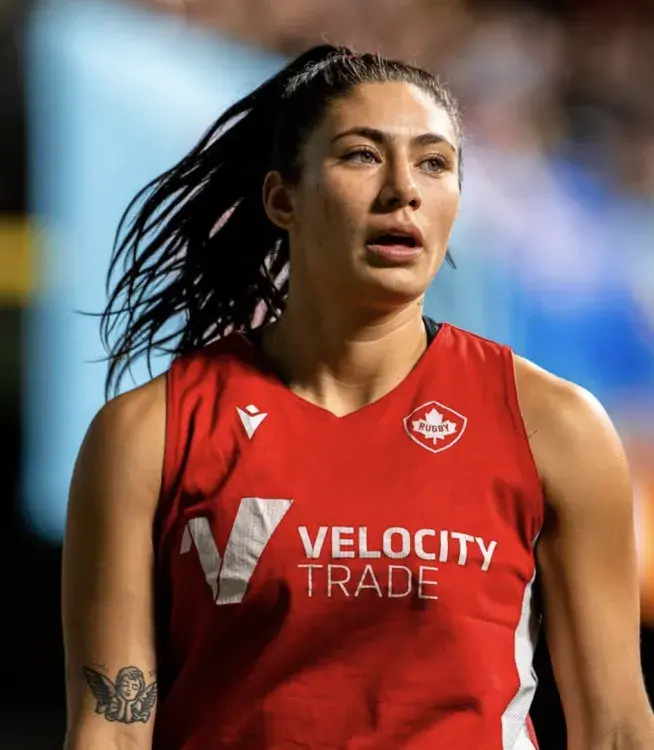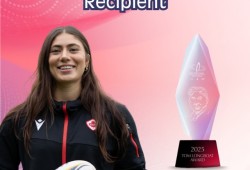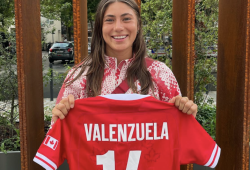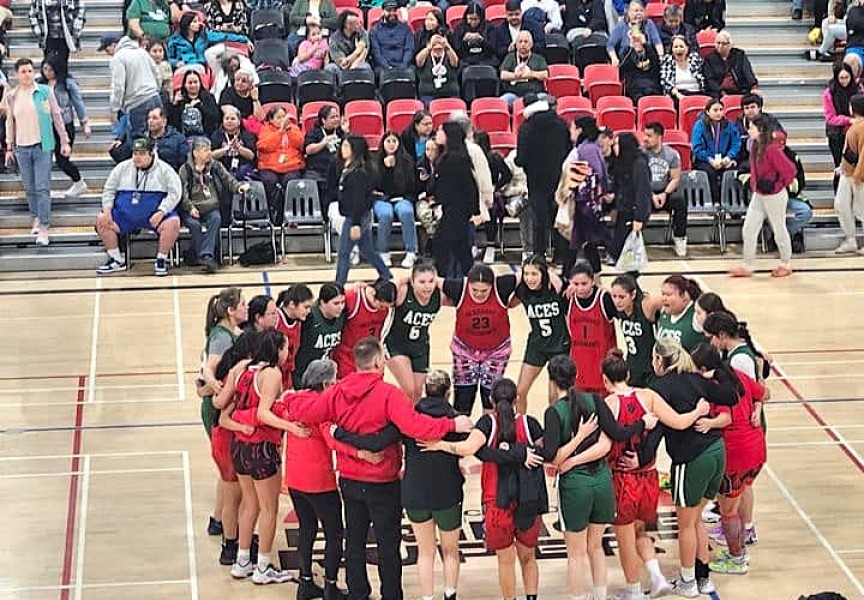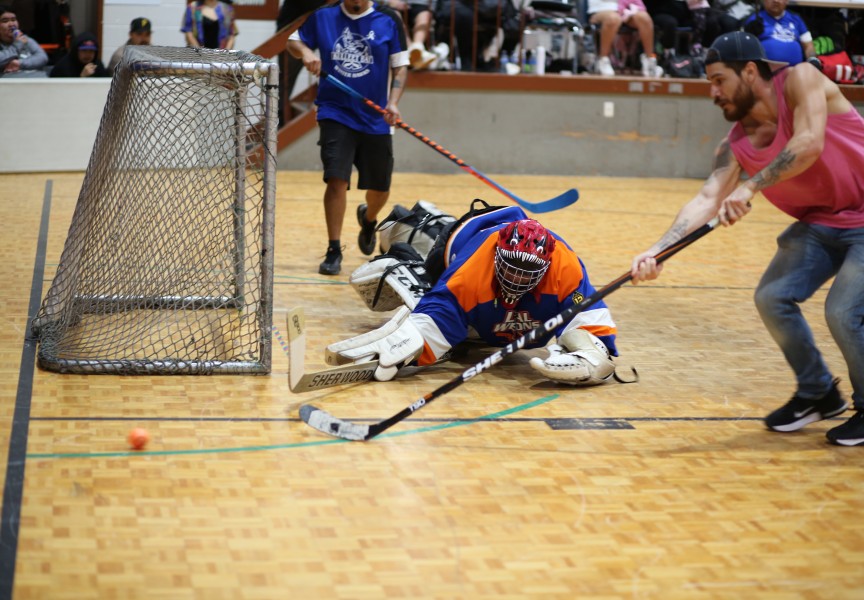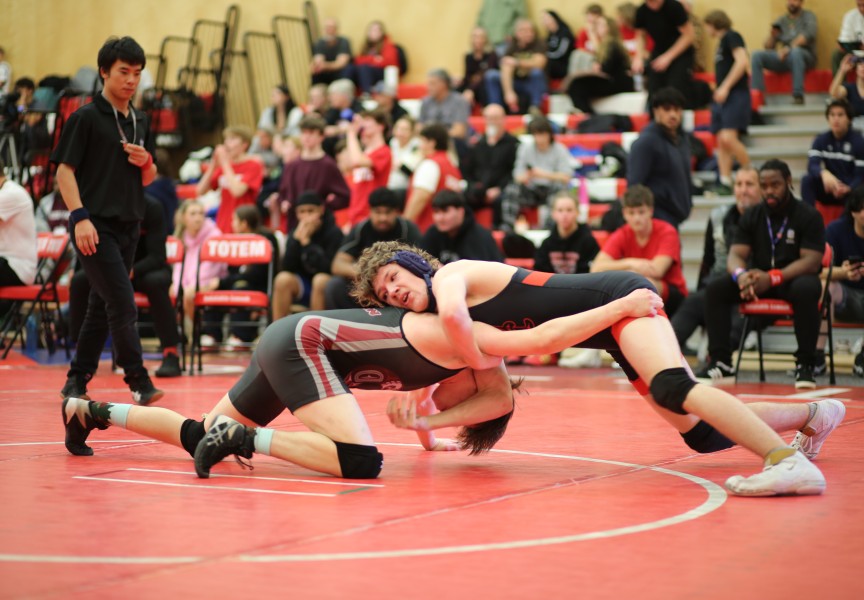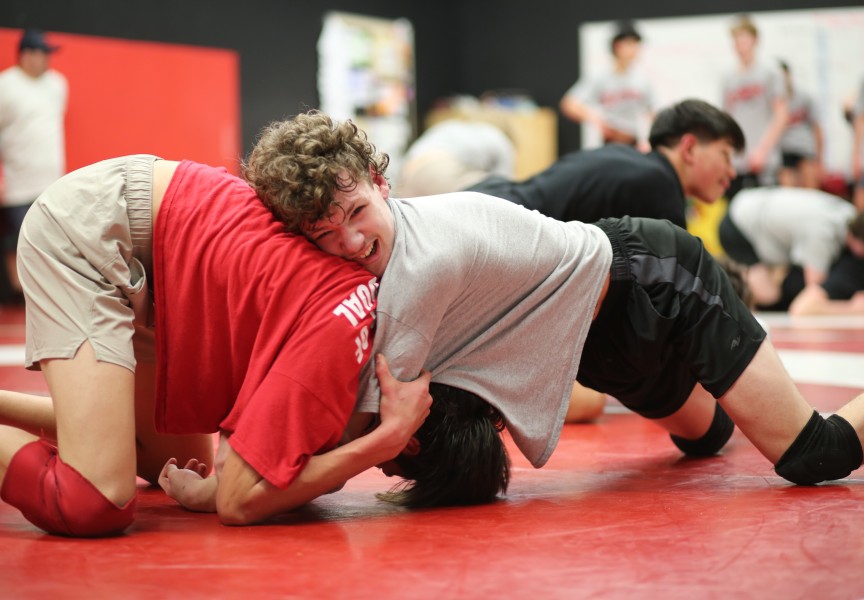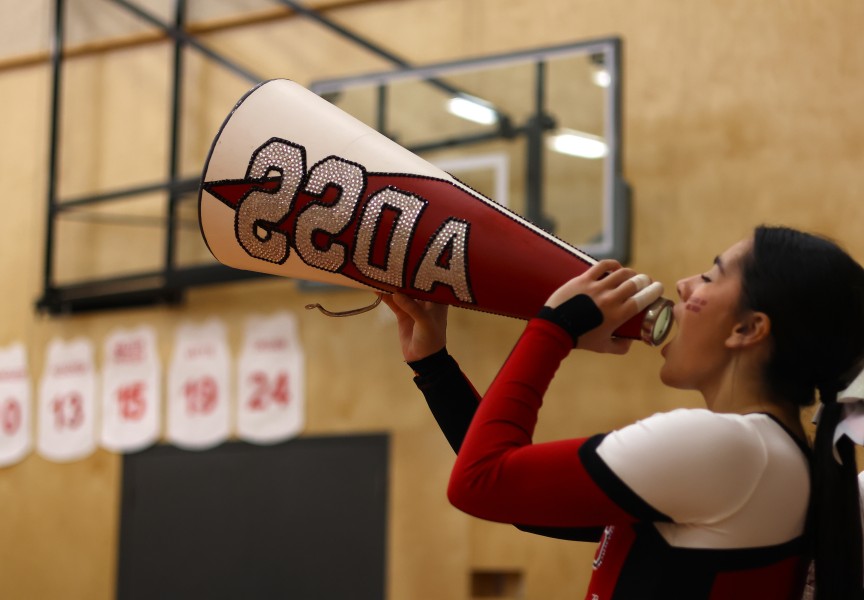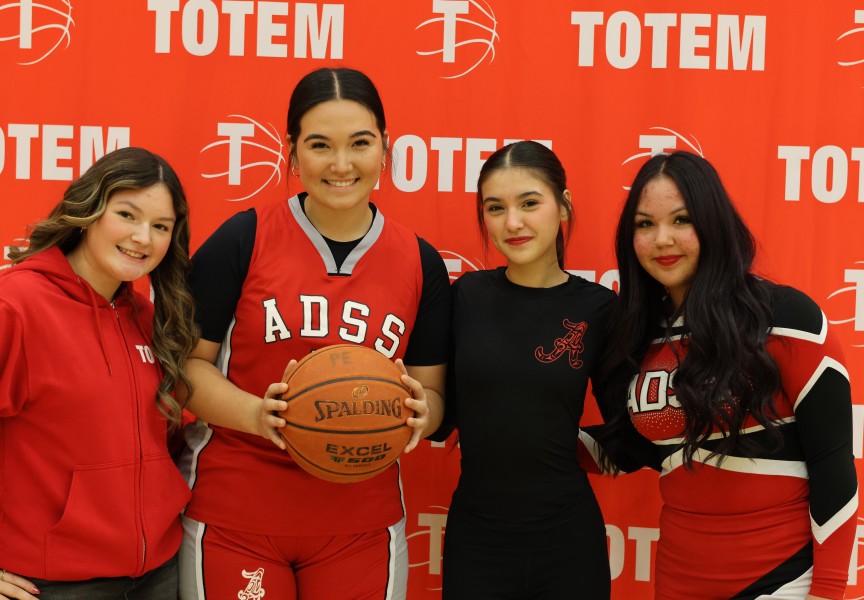Shalaya Valenzuela likes her new designation.
It was officially announced this past Saturday that Valenzuela, a Tseshaht First Nation member, has been chosen as this year’s top Indigenous female athlete in Canada.
She was presented with her national Tom Longboat Award at the Aboriginal Sport Circle (ASC) gala ceremony in Ottawa.
“That has a nice ring to it,” she said of her latest accolade.
Valenzuela had made history last year. She was a member of the Canadian women’s rugby sevens squad that captured the silver medal at the 2024 Paris Olympics.
Thus, she became the first Indigenous woman from the country to win an Olympic medal in the version of rugby, which sees seven players per side on the field as opposed to the traditional 15 athletes per club.
During the 2024-25 season, Valenzuela also competed in 23 other international World Rugby Seven matches.
Plus, after the Paris Olympics, she returned to school and suited up for the University of British Columbia (UBC) Thunderbirds team that ended up winning its national university title.
Valenzuela was not that surprised she was named the recipient of the Tom Longboat Award, annually presented by the ASC, the governing body for Indigenous athletics in Canada.
“It’s been a big year for me,” she said. “So, I was hopeful. But I definitely think I put in a lot of hard work this year. So, the award just reflects this past year and all the achievements I’ve had.”
Swimmer Apollo Hess, a member of Kainai Nation in Alberta, was chosen as the male winner of the national Tom Longboat Award.
The awards are named in honour of Longboat, one of the country’s best long-distance runners ever. Longboat, a member of Six Nations of Grand River in Ontario, participated in the marathon event at the 1908 Summer Olympics. He also won the prestigious Boston Marathon in 1907.
The ASC also annually honours regional (provincial or territorial) recipients of the Tom Longboat Awards.
“I was notified that I was a regional (British Columbia) recipient,” Valenzuela said. “And then a couple of weeks that followed, I was notified I was the national recipient.”
Valenzuela added she believes capturing the national award is just as memorable as winning an Olympic medal.
“It’s right up there,” she said. “It’s one of the biggest national awards you can get for Indigenous sports. So, I would put it right up there next to the Olympics. I’m really proud to be able to represent my culture on the world stage and being a role model for Indigenous athletes. So, I think it’s just as meaningful but in a different way.”
During her acceptance speech at Saturday’s gala, Valenzuela touched on challenges she had early in her life.
“Most of the challenges I had that I was referring to was being in foster care at a young age,” she said. “Obviously my parents struggled with their own challenges. I was mainly just talking about that, using sport as my outlet to be able to express myself and it being a place where I could just be me, because at that time I think I was just yearning for a sense of belonging and to feel equal.
“Sport was like a level playing field where it didn’t matter who I was or where I came from.”
Valenzuela was hoping that she would be on the field this fall to help the UBC Thunderbirds in their quest to defend their national title. The Thunderbirds are hosting the eight-team Canadian university championships, which run from Oct. 29 through Nov. 2.
But she has been unable to play for the UBC club this fall as she is recovering from a July surgery to repair a torn ACL in her right knee.
“That was one of the most upsetting parts being injured, was that I knew I would be missing out on nationals at home,” Valenzuela said. “And we just came off UBC’s first national title. I was ready to back that up with back-to-back national titles. I was a little bit upset but things are looking really good for us.”
Though she will be unable to play for the Thunderbirds at this year’s Canadian tournament, Valenzuela has found another way to have a key role at the event.
She will be providing colour commentary analysis for tournament matches that will be broadcast on CBC Sports.
Valenzuela said broadcasting is a field she might explore after her playing days are over.
“I think it could be a nice side gig,” she said. “I know a lot of athletes after they retire from sport still want to stay connected to their sport. So, I know there’s been a lot of players who have gone on to broadcasting as the next path. I’m just keeping an open mind about it because I realize it is really fun and I’m passionate about it. I will definitely keep my options open if opportunities arise.”

